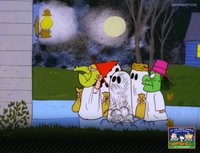if you're like me, you've seen the recent media frenzy around the documentary on a cultic and abusive camp in north dakota called "jesus camp." i am not going to get into my rants and raves against the media who cower in the midst of abusive people who call themselves christian, refusing to ask the hard theological and psychological questions for fear of being called "anti-christian." it seems like people get a pass if they use the word "christian" to self-identify when really most who feel the need to do so are mis-using the faith that means so much to me. if you're reading this blog, then you already believe that it is anti-christian to scare young children into tears over things like abortion, gay marriage, hell, and the military. instead of giving credence to this group by giving them air space, wouldn't it be great it the media covered all of the christian materials that support healthy and whole children, that contribute to good psychological development, and that encourage children to grow into questioning, reflective and caring adults who are deeply committed to a god of love and justice?
church camp can be a tricky thing. camps often reflect the theology and temperment of the person in charge. before i send kids off to camp, i try to find out who's in charge, what kinds of things they'll be doing, how they will worship, and what they will be singing. as a child i attended a pretty fundamentalist and charismatic camp for a few years. it took a lot of work to undo the mess made of my soul. i also attended really wonderful united methodist camps in arkansas. i remember in high school attending a forum where pastors debated sin and hell and all of those things that people get hung up on. this was the first place that i ever encountered adults willing to say out loud that they didn't believe in a literal hell or a literal heaven. it was in this place where i first was encouraged to think about such things in terms of states of being rather than physical destinations. camp can be dangerous; it also can be a place of incredible spiritual growth and formation where life-long friendships are made.
there are lots of curricula and materials out there that seem really good on paper, but i have found many of them problematic to actually use with kids; they're just not practical. one of the difficulties of being a progressive christian is that we want kids to learn a process more than we want them to learn things - dogma, doctrine, rules. i want the kids in the churches i serve to learn to think about and reflect on god, to look beyond themselves and even their faith tradition to the gifts and goodness found in others, and to value the fragile earth which god gave us to tend and protect.
during easter, interestingly, "resurrection eggs" are a hit with my church's kids. there is a book that you can purchase that tells the story along with the eggs. it's a good mixture of kitsch and information. i see adults playing with them on easter as well. because they are funny, it takes some of the edge off of the difficult theology without leaving out the tough parts of the story.
spiritual formation curricula that are interesting to kids are difficult to find. kids also seem to like
pockets, a monthly activity magazine (and web resources) published through the upper room.
sprouts is a resource in the same series for younger children, but i've never used it. there is a curriculum in the
companions in christ series just for children, but the kids that i know have found it a bit boring. by and large, we make curricula work for us at wpumc, but we have never found the "perfect" thing. however, it's clear that kids get more out of indirect learning than we often assume. it's important to engage children in the missions of the church and in the function of worship. i'm always amazed at what gets brought to my attention by the children of this church. they learn as much from how we do church than from what we try to teach them.
here are some books that i like to use with children. some are for small children and others are for older elementary kids. if you have materials that you have used and have found helpful, let me know. i'm always looking.
mama, do you love me? by barbara m joose, illustrated by barbara lavelle
in god's name by sandy eisenberg sasso, illustrated by phoebe stone
in our image - god's first creatures by nancy sohn swartz, illustrated by melanie hall
the harry potter series - by j.k. rowling
easter - by gail gibbons (the pictures are a little uniformly white, but a good book anyway)
claire and francis - by guido visconti and bimba landmann
jesus, the word - by mark francisco bozzuti-jones, illustrated by shelly hehenberger
the last supper - original spanish version by mada carreno, illustrated by bety fischman
on the day you were born - by debra frasier (this is one of my favorites! it also has a list of other really great books in the back)
the story of passover - by norma simon, illustrated by erika weihs
god created - by mark francisco bozzuti-jones, illustrated by jui ishida
creation - by gerald mcdermott
noah's ark - editor, victoria forlini (male language for god, but is a sound book so little kids like to push the buttons and make the sounds...)
becoming me: a story of creation - by martin boroson, illustrated by christopher gilvan-cartwright (my all time favorite!!!! hands down the best!!!)
the story of religion - by betsy and giulio maestro (good overview of world religions)
what is god's name - by sandy eisenberg sasso, illustrated by phoebe stone
god loves you - by kathleen long bostrom, illustrated by elena kucharik
these are just some of the books that i have found to be beautifully illustrated, theologically sound (for the most part), encouraging, and accessible. but my favorite books are all on loan (except for
becoming me). as they are returned, i'll add them to this list.










